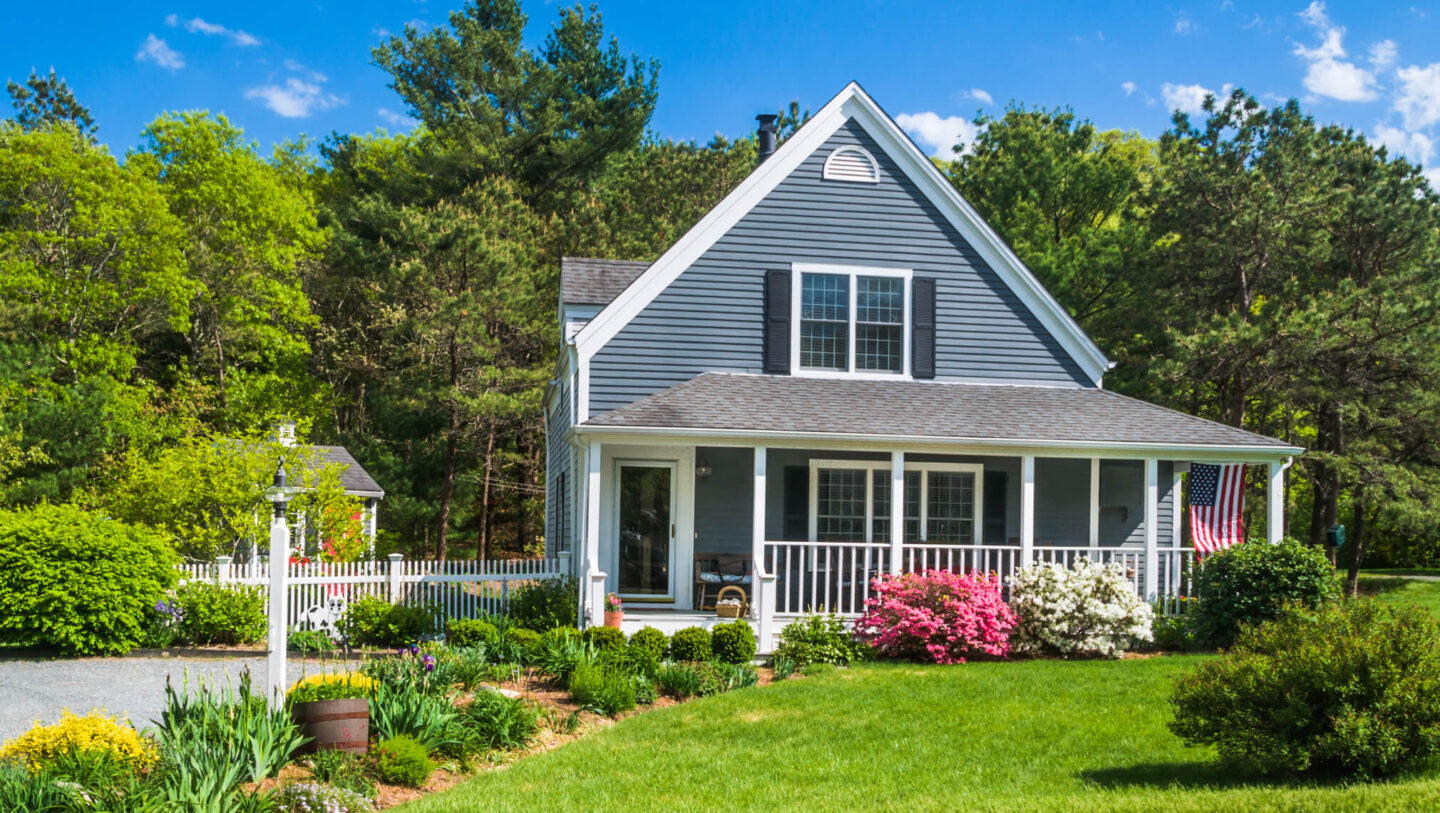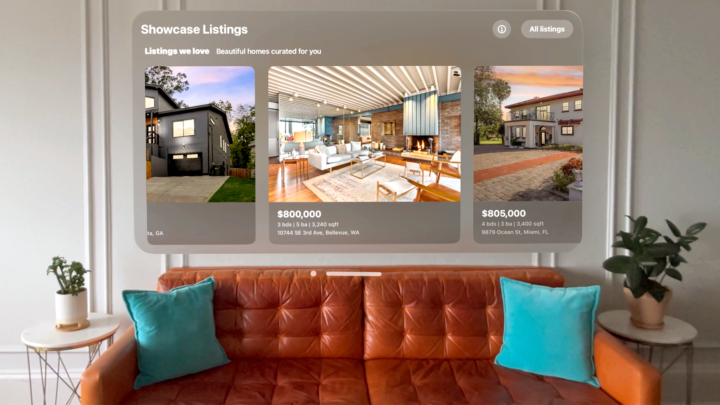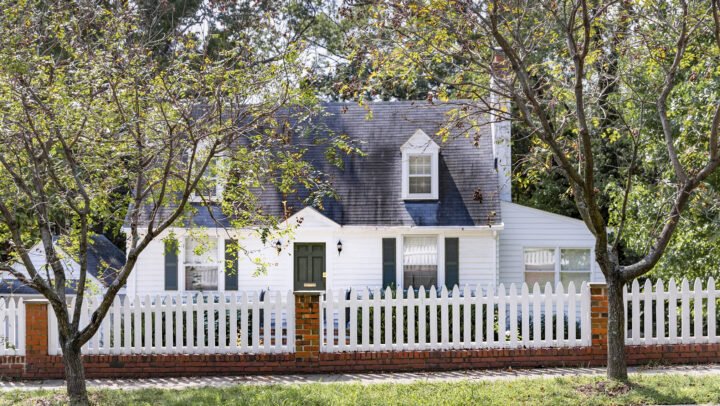How Much Does It Cost to Sell a House?
From home preparations to staging and commissions to closing costs, it's important to be prepared for all potential costs.


Written by May Ortega on October 30, 2024
When you're planning on selling your house, it's easy to get excited looking at your Zestimate® and seeing how much your home value has increased over the years. But selling a home comes with a list of sometimes overlooked costs that will affect how much money you’ll make after the sale is finalized.
From home improvement costs to taxes and real estate fees, here are some of the expenses you can expect as you go through the selling process.
How much does it cost to sell a house?
While there is no set cost to sell a house, you’ll want to prepare for a range of 10-15% of the sale price. The overall transaction costs of selling a house include expenses in two main areas: most likely costs and potential costs. These can vary widely depending on where you live and your individual circumstances.
Most likely costs include standard closing costs, which have historically ranged from 8% to 10% of the home's sale price. These generally include the commission you’ve negotiated and agreed to with your agent to sell your home, plus an additional percentage of the sale (approximately 2% to 4%) in transfer taxes, property taxes, attorney fees, and other real estate fees such as title insurance and escrow fees. Costs you’ll typically incur also include charges associated with preparing the home for sale and relocating your belongings.
Potential selling costs that vary from case to case include optional concessions to the buyer, HOA fees, and temporary housing. These may add on expenses that total another 2% to 5% of the sale price, or more depending on your situation.
If you're just beginning your selling process and want to estimate how much money you’ll make selling your home, try our home sale proceeds calculator.
Breakdown of home-selling costs
- Home preparations
- Vacating the home
- Seller concessions
- Closing costs for sellers
- Real estate fees: Loan payoff, taxes and penalties
Costs associated with selling a house
Home preparations
About 65% of sellers take on at least two home improvement projects to prepare their home for sale, according to 2022 research commissioned by Zillow® and conducted by The Harris Poll, spending an average of $5,400, according to Thumbtack® data for that year. Home improvements are just one aspect of the home preparations costs that sellers typically take on before putting their house on the market. Some of these costs are more likely for sellers to incur than others. For example, you might opt to do light landscaping to boost your curb appeal before selling in order to make it more appealing to buyers, but you decide to skip staging your home.
Cleaning: Before your first open house or showing, consider hiring a house cleaner to do a deep clean. You'll also want to have the carpets professionally cleaned and the windows washed. Costs will vary depending on home size.
Staging: Staging means you’ve prepared your home for photos or for potential buyers to tour and get a sense of what the space would look like with furniture throughout. Zillow research has shown that just under half of buyers who purchase a home report staging was at least somewhat important to them. Home staging can take many forms, but at a minimum, you should declutter, arrange furniture to make the most of the space, and remove personal belongings. Little touches like new bath towels, a fresh doormat, flowers, and cookies can go a long way, too.
Landscaping: Your curb appeal is your home's first impression, so you'll want to make your exterior look its best. Add flowering plants, create a walkway if you don't already have one, rake any leaves, mow the lawn, light the walkway, and — in winter — shovel snow.
Home improvements: There are two main types of home improvements you can do before listing: updates to repair or replace old systems (roof, furnace, windows, etc.), and upgrades like painting that add features buyers love, with a goal of garnering a higher sale price. Ask your agent for their recommendation on what buyers in your specific area are looking for.
3D tours and professional photos: Twenty-seven percent of home buyers say that viewing high resolution pictures of a property is the most important feature of a home listing. The investment is small, but the payoff can be huge. Real estate photographers charge $100 per hour on average, according to Thumbtack. If you're using a full-service listing agent, they may cover the cost for you. You may also want to consider pursuing 3D virtual home tours for your property — Zillow survey data shows more than half of prospective buyers regret wasting time visiting properties they would have skipped if they had had access to the floor plan beforehand. You can save time and effort by saving in person tours for serious buyers–offer up a video tour or a 3D virtual tour through Listing Showcase to confirm interest early.
Marketing costs: There are costs associated with listing your home on the local MLS, but it is usually covered by your real estate agent if you're using one. If you're selling on your own — called for sale by owner (FSBO) — you can list your house for free on Zillow. If you’re selling on your own, you’ll also want to set aside some money to print flyers, signs and open house materials. However, going it alone does present disadvantages, such as not having an experienced partner in the process who can help you avoid pitfalls in marketing, receiving offers and making counter offers, and navigating the closing process. 90% of home sellers used an agent to sell their home last year. So far this year, homes were on sale for an average of 20 days before being listed as “pending.” Having good marketing could help reduce that time.
Pre-inspection: A pre-inspection is optional, but if you choose to do one before listing, you'll know ahead of time about any major issues that need to be addressed, which can save a lot of negotiating with potential buyers down the road. According to Zillow research, 30% of home deals that fell through failed because the buyer backed out after the inspection report. The U.S. Department of Housing and Urban Development estimates the cost for home inspections ranges from $325-$375. Once you have that done, you'll have the information you need to choose the right list price and the ability to negotiate strategically.
Vacating the home
Another type of expense you'll need to budget for is moving — the costs related to actually vacating your home.
Temporary housing: If you're selling one home and buying another, it's almost impossible to time the transactions perfectly so there are no additional housing costs. Regardless of where you're moving next, most sellers typically have an overlap of about a month and a half when they're still paying their existing mortgage, plus alternative housing costs.
Utilities: Most sellers leave their utilities on while their house is on the market, for showings and open houses. But be sure to shut off utilities as of the date you vacate so you can avoid unnecessary costs. Your final utility bills should be prorated as of the date of sale.
Moving costs: Moving expenses can vary dramatically based on the size of your home, how many belongings you have, and how far you're moving. But whether you're doing a DIY move, using professionals from start to finish, or something in between, there are always expenses associated with moving, and they often have to be paid before closing, so you'll need cash available.
Homeowners insurance for vacant property: Did you know that your existing homeowners insurance policy may not cover your property when it's vacant? If your home is going to be vacant for any period of time, it's important to talk to your agent about adding a rider to cover that period.
Seller concessions
It's rare that you receive the perfect offer and can close without making any concessions to the buyer, like the deal being contingent on the home passing an inspection.
Here are a few common concessions:
Post-inspection repairs: Rarely does an inspection report come back perfect, so it’s common for buyers to request repairs from sellers. As a result of an inspection report, sellers often either lower the sale price so the buyers can make the repairs themselves, or have the repairs completed as a condition of the deal.
Home warranty for buyer: As a way to sweeten the deal for potential buyers, sellers sometimes cover the cost of a home warranty. Not only can it make your home stand out from others on the market, but it can increase a buyer's confidence in your property. A one-year home warranty costs an average of $600, according to Forbes.
Credits toward closing costs: Another concession buyers often request is that the seller cover all or part of the buyer's closing costs, which effectively minimizes the amount of cash a buyer needs to bring to the closing. For the seller, this cost comes out of the profit you'll make on the home on closing. According to the Zillow Consumer Housing Trends Report 2024, 67% of sellers agreed to pay some or all closing costs to the buyer.
Seller closing costs
Average closing costs for sellers have historically ranged from 8% to 10% of the home's sale price, including both agent commission and seller fees. With the typical home value in the U.S. at $362,000, that puts the closing costs in a range from $28,960 to $36,200. Of course, these costs vary depending on the tax rate where you live, your agent commission, and the value of your home.
Seller closing costs include:
Agent commission: The majority of your closing costs come from paying commission to real estate agents. Historically, agent commissions have been between 3% to 6% of a home’s sale price, but there is no set commission percentage. It’s also important to remember that commissions, and the types of services an agent offers, are negotiable. Talk with your agent early on in the process on how much their commission is, what kind of services they provide, how the commission will be paid, and who will pay it. Some sellers may choose to pay part of the buyer’s agent’s commission.
Transfer tax: Also known as a government transfer tax or title fee, this amount varies widely due to varying tax rates by state and the sale price of the home.
Title insurance: In many markets, sellers also pay for a title insurance policy for buyers, which protects their interest in the home if there are issues with a disputed title or outstanding liens. Costs usually range between 0% and 1%, typically around 0.5% of the home sales price, and come out of your net profits on the deal on closing.
Settlement fees: This is the cost of settlement, also called escrow, services (the third-party company that handles the disbursement of funds in the sale). The amount varies significantly by state, from $200 to the seller, up to 0.5% of the purchase price split between the buyer and seller. This can also include extra line items related to documentation (drafting, notarization, recordation) and money movement (wire transfers).
Prorated property taxes: You're responsible for the property taxes on your home up until the day of closing, so once you close, you'll see a prorated charge on your final settlement statement. That means you’ll still have to pay for the home’s property taxes equivalent to the number of days the house was still yours before the deal was finalized. So if the home was still legally yours for five days out of the final month you owned it, you’ll have to pay five days’ worth of taxes.
HOA fees: Similar to property taxes, if you live in a community with a homeowner's association, you'll also be required to pay your dues, prorated up to the close date. There also may be a fee for the transfer of ownership. The average HOA fee was nearly $200 a month, according to the 2021 U.S. Census, but they can range anywhere between $100-$1,000 depending on where you live and how many amenities are offered.
Attorney fees: If you use the services of an attorney in your transaction, you'll have to pay them at closing. Their fees range significantly — anywhere from $150 to $350 per hour, or it could be a flat fee depending on what they do for you.
Real estate fees: Loan payoff, taxes, and penalties
Once the closing costs are settled, it's not all profit. There are still a few more costs of selling a house that you need to be aware of:
Outstanding mortgage balance: If you're still paying a mortgage on the home, part of the closing process will include paying off the balance of your mortgage, prorated to the date of sale. You'll want to check with your mortgage company to see if there is a prepayment penalty as well.
Capital gains tax: Here's a cost to sell a house that's often overlooked — until tax time. If you've lived in the home for at least two of the last five years, you'll get a tax break on the profit you make on the sale: up to $250,000 if you're single or married filing separately; or $500,000 if you're married, filing jointly. If you think you're going to be subject to capital gains taxes, either because you've profited more than the set amount, or because you've lived in the home for less than two years, ask your tax professional about subtracting the costs of preparing the home for sale from your profits.
How much will it cost to sell my house?
To calculate how much it will cost you to sell your house, first subtract your current mortgage balance from your sale price to estimate your home equity. Next, subtract your most likely transaction costs and your possible transaction costs to determine your net proceeds. From here, divide your net proceeds by your equity to see how much it costs you to sell your home.
- Sale Price- Current Mortgage Balance = Equity
- Equity - (Most Likely Transaction Costs + Possible Transaction Cost) = Net Proceeds
- Net Proceeds / Equity = Cost to Sell Home
Let's use a $362,000 home (the cost of a house based on the typical U.S. home value in mid 2024) as an example*. Say you purchased the home five years ago, putting 10% down (that's $36,200). You’ve also paid $20,000 towards your mortgage principal in those five years that you’ve been living there.
Now you're able to sell the house for $450,000, thanks to appreciation and home improvements you've made. Here's an estimate of what your costs might be:
| Original purchase price | $362,000 |
| 10% down payment | $36,200 |
| Loan amount | $325,800 |
| Current estimated mortgage balance (based on the $20,000 you’ve already paid while living in the home). | $305,800 |
| Sale price | $450,000 |
Most likely transaction costs
| Home preparations | $5,388 (The average national cost of home improvement projects, according to Zillow and Thumbtack; includes common updates like staging, carpet cleaning, and landscaping). |
| Agent commissions | Negotiable. This varies based on market, market conditions, and the type of agreement you negotiate with your agent. |
| Transfer tax | Varies widely by location |
| Prorated property tax | Varies widely by location |
| Utilities | $429 per month (based on average monthly utility bill data from Forbes) |
| Moving | $300 to $960, depending on the size of your home, according to Thumbtack. For this example, we’ll use $750. |
| Escrow | $750 (Usually $200 to the seller to up to 0.5% of the purchase price split between buyer and seller, but amounts vary widely by state) |
| Title insurance | $2,250 (Costs range between 0% and 1% of the home’s purchase price, typically hovering at about 0.5%) |
| Sum of most likely costs | $8,817 + taxes + agent commissions (Agent commissions can vary widely. Here’s how to negotiate with your agent). |
Possible transaction costs
| Buyer concessions offered during negotiation | $13,500 (This example uses 3% of the sale price, but concession limits vary by loan type) |
| Optional pre-inspection | $300-$500 (depending on the size of the home). For this example, we’ll use $500. |
| HOA fees | $191 (The average according to the 2021 U.S. Census, but they can range anywhere between $100-$1,000 depending on where you live and how many amenities are offered) |
| Temporary housing | $3,081 (1.5 months at the U.S. average rent of $2,054 a month) |
| Sum of possible costs | $17,272 |
Total costs of selling a home
| Sale price | $450,000 |
| Current mortgage balance | -$305,800 |
| Equity (sale price minus loan balance) | = $144,200 |
| Most likely transaction costs | - $8,817 + taxes + agent commissions |
| Possible transaction costs | - $17,272 |
| Transaction Costs | $26,089, or just under 6% of the sale price.* (Plan on your transaction costs to be higher after accounting for taxes and agent commissions.) |
| Net proceeds | $118,111 |
* An example for illustrative purposes only. Costs will vary based on agent commission amount, taxes, and other factors.
Tags
Ready for a new address?
Get an instant cash offer or list with a local partner agent.
Explore selling optionsRelated Articles
Sell your home with a winning strategy
Here’s how to maximize your home sale with the right selling plan.

Build a smart selling plan
Talk to your agent about their marketing approach - especially online - to ensure you’re getting the best possible price for your home.



